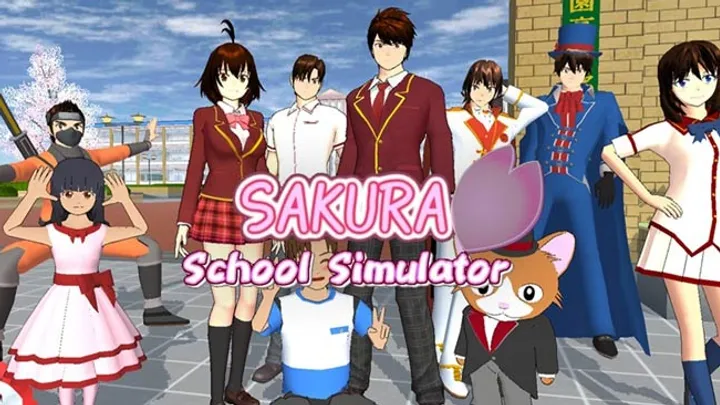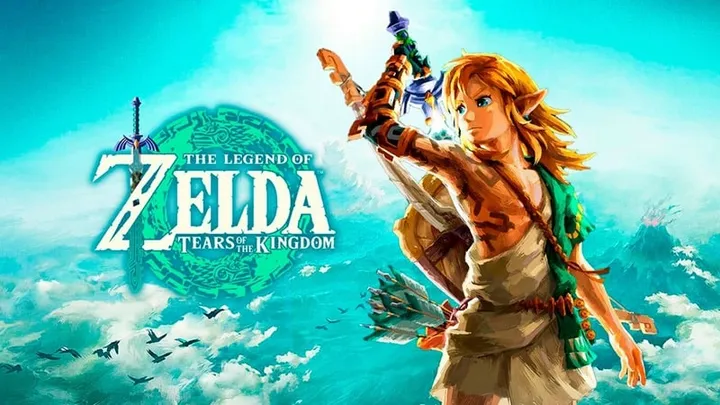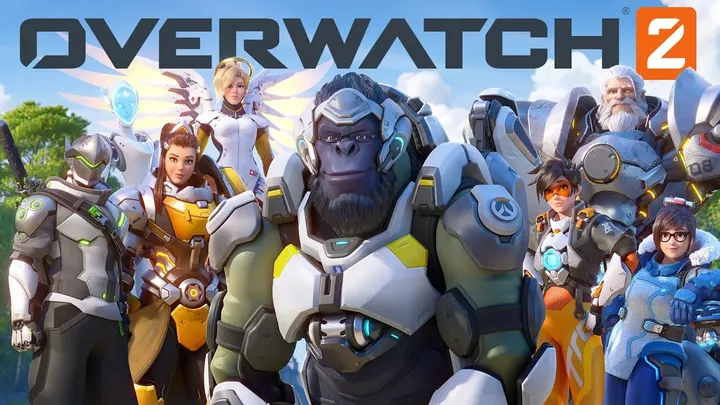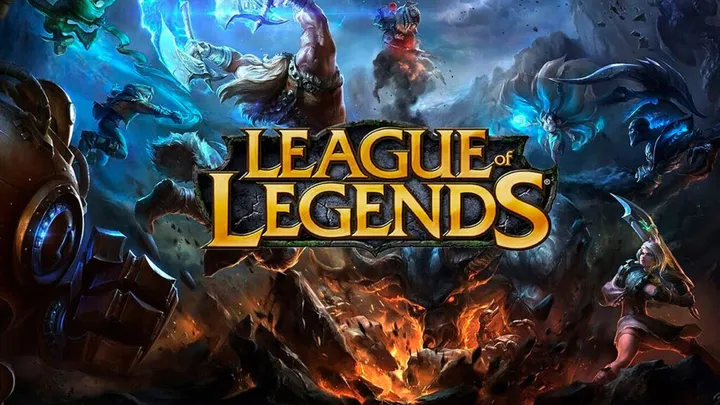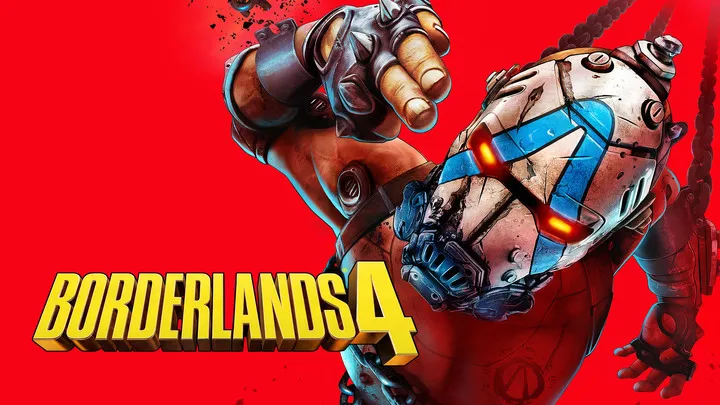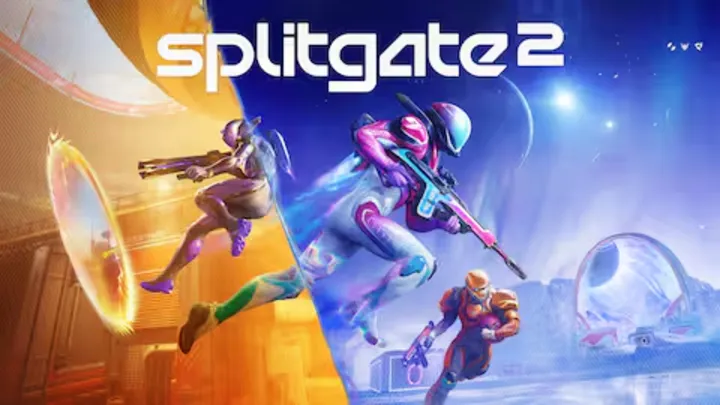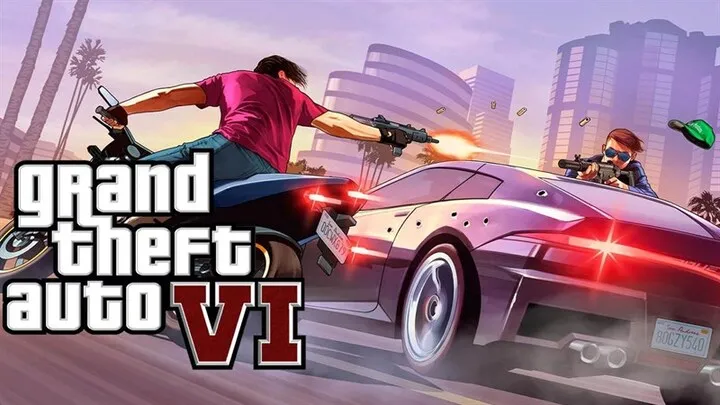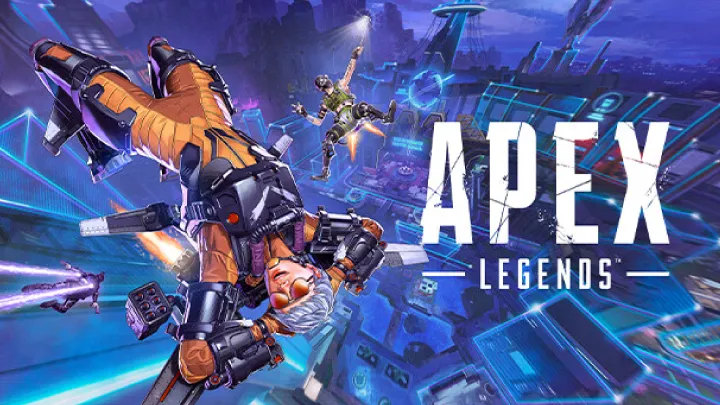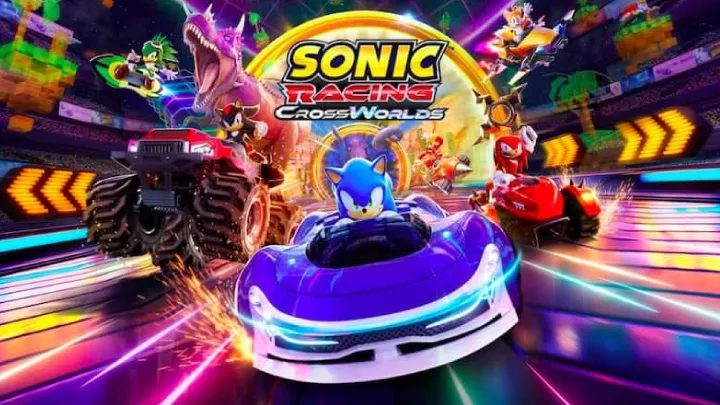Grand Theft Auto VI (GTA VI) is not just another open-world spectacle—it’s a mirror reflecting the moral, cultural, and psychological fractures of modern life. Rockstar Games’ upcoming masterpiece promises a deeper narrative and sharper societal critique than any of its predecessors. This article delves into the moral realism and social commentary that lie beneath GTA VI’s flashy exterior, exploring how it exposes contradictions in capitalism, identity, and justice. Rather than discussing gameplay mechanics or guides, we’ll focus on the game’s narrative philosophy and what it says about humanity in the digital age.
1. The Rebirth of Vice City: Setting as a Reflection of Society
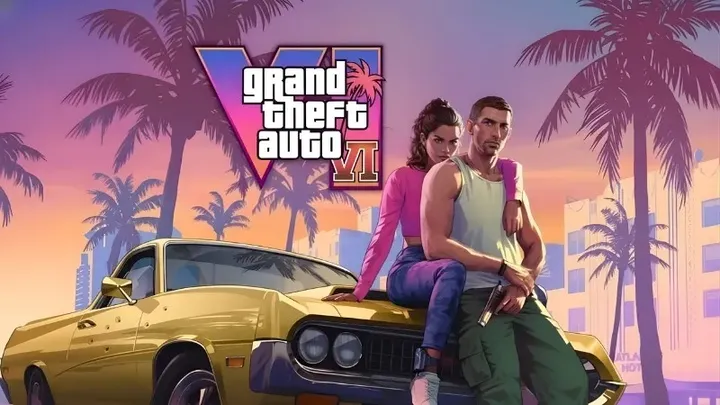
Vice City’s return in GTA VI is more than nostalgic—it’s philosophical. The neon skyline and decaying suburbs represent two opposing versions of the American Dream. On one side, wealth and beauty radiate through skyscrapers and celebrity mansions. On the other, working-class neighborhoods struggle against debt, crime, and corruption. This duality makes Vice City a living organism, not just a backdrop.
The design philosophy seems aimed at immersing players in contradiction: luxury and decay coexist, and every street tells a moral story. Players might pass a billboard promising success while witnessing a homeless man scavenge in an alley. Rockstar doesn’t just show disparity—it forces us to inhabit it.
The Architecture of Power
Every building in Vice City signifies power distribution. Corporate towers reach upward while residential slums sprawl outward. This contrast illustrates how spatial design itself reinforces class hierarchy—a subtle yet effective critique of modern capitalism.
2. Dual Protagonists: Lucia and Jason as Moral Foils
Unlike previous installments, GTA VI reportedly centers around two protagonists—Lucia and Jason. Their dynamic relationship mirrors complex social realities: love under capitalism, loyalty under pressure, and morality under chaos. Lucia, a Latina woman navigating systemic inequality, contrasts sharply with Jason, whose charm conceals moral ambiguity.
The duality isn’t just narrative—it’s psychological. Lucia represents survival ethics; Jason embodies pragmatic amorality. Together, they question whether morality is a luxury or necessity in a corrupt system. Their criminal acts are not glamorized but contextualized as responses to institutional decay.
Gendered Narratives and Power Shifts
Lucia’s presence marks a turning point in the GTA franchise. Her arc challenges the traditional masculine dominance of crime fiction. Rather than a side character or object of desire, she symbolizes resistance—an anti-heroine navigating patriarchy within both the underworld and society.
3. Economic Collapse and the New American Dream
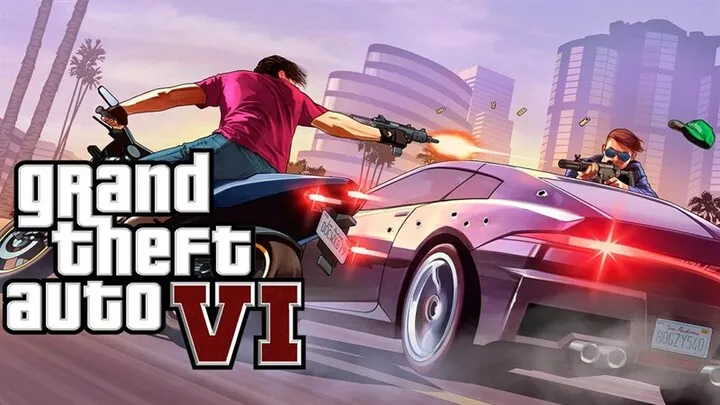
GTA VI’s economy reportedly mirrors post-pandemic instability, cryptocurrency booms, and housing crises. Through this digital reflection, Rockstar critiques the illusion of economic opportunity in modern America. Every mission, deal, or heist becomes a metaphor for survival in a rigged system.
The American Dream, once built on labor and aspiration, now pivots on speculation and deception. Players may find themselves running crypto scams or flipping real estate—activities that blur the line between legality and criminality, echoing real-world systems of exploitation.
Satire and Structural Inequality
Rockstar’s satirical tone remains sharp. Ads mocking self-help gurus or tech moguls expose the commodification of hope. GTA VI’s satire is not random humor—it’s social analysis disguised as absurdity.
4. Surveillance, Social Media, and the Death of Privacy
One of GTA VI’s most anticipated themes is digital surveillance. In a world dominated by smartphones, every act can be recorded, sold, or manipulated. Rockstar incorporates this paranoia directly into gameplay: crimes might be caught on livestreams, gossip networks, or Lifeinvader-style platforms.
This isn’t mere world-building—it’s commentary. Players will confront the consequences of living in a society where identity is currency and privacy is myth. Even morality becomes performative, as citizens broadcast virtue while concealing vice.
Identity in the Age of Algorithms
The game’s social media satire targets how digital culture shapes self-perception. By forcing characters to manage their image, Rockstar critiques the modern obsession with visibility—where being seen is more valuable than being good.
5. Crime as Capital: The Political Economy of Violence
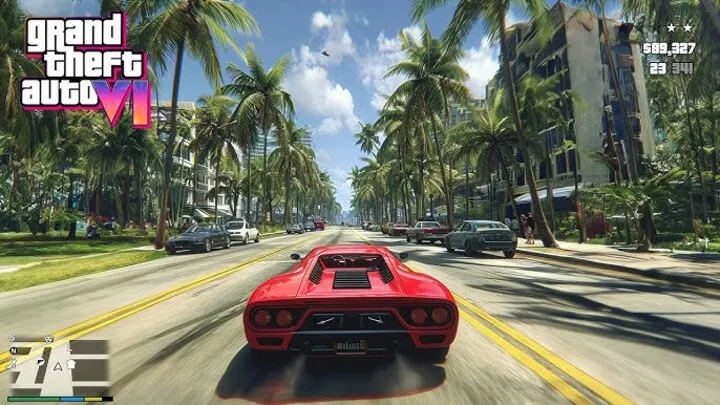
Violence in GTA VI is not random—it’s systemic. The game portrays crime as both a symptom and a product of capitalist exploitation. When legal systems serve only the elite, crime becomes the working class’s response to powerlessness. Rockstar blurs the moral line between rebellion and survival.
Each act of violence becomes a social transaction. Robberies, smuggling, or cybercrime are framed as labor forms—desperate entrepreneurship in a broken market. By turning violence into economic language, GTA VI exposes the moral bankruptcy of modern capitalism.
The Sociology of Street Economy
The street economy functions as an informal market network. Through its representation, Rockstar highlights how institutional failure breeds shadow economies. The player, then, becomes both a participant and a critic of systemic corruption.
6. Law Enforcement and the Illusion of Justice
Police and federal agents in GTA VI are not moral authorities—they’re extensions of the same corrupt system. Their selective enforcement exposes institutional hypocrisy: corporations commit mass fraud, but the poor are punished for survival crimes.
Rockstar uses satire and realism to blur lines between justice and oppression. Police drones, militarized raids, and racial profiling mechanics transform law enforcement into a metaphor for structural control.
Ethics Under Surveillance
By simulating a police state, GTA VI challenges players to question authority. Every chase scene and investigation becomes an allegory for societal control—how laws are designed not to protect morality, but property.
7. The Psychology of Power and Alienation
Beneath its criminal chaos, GTA VI explores alienation—the psychological cost of living in a society that values profit over purpose. The protagonists’ emotional detachment mirrors the real-world epidemic of disconnection in digital culture.
The constant pursuit of wealth leaves characters hollow. Rockstar’s narrative invites players to feel that emptiness, asking: when everything is transactional, what remains human?
The Existential Loop
Even success in GTA VI feels futile. Mansions, cars, and status symbols become symbols of exhaustion. The endless repetition of crime mirrors capitalist labor cycles—where work never ends and satisfaction never comes.
8. Media, Politics, and Manufactured Reality
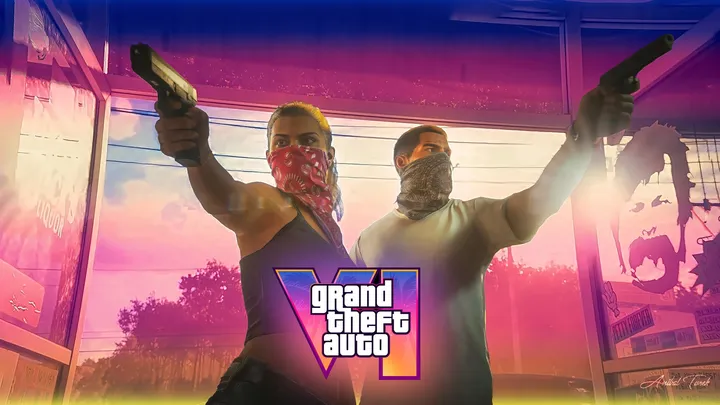
Rockstar has always used parody news networks and talk shows, but GTA VI amplifies this into full-scale media warfare. Fake news, political polarization, and propaganda dominate Vice City’s information landscape.
By manipulating media perception, Rockstar questions how truth functions in a post-fact society. Every broadcast is biased, every source corrupted, echoing the digital chaos of modern news culture.
The Theater of Democracy
Political campaigns and social movements within the game reflect manipulation rather than idealism. Activism becomes branding, and outrage becomes entertainment—an eerily familiar reflection of real-world politics.
9. The Role of the Player: Moral Participation and Guilt
GTA VI’s genius lies in implicating the player. Every action—no matter how justified—reveals complicity in systemic violence. The game transforms entertainment into ethical confrontation.
Players can’t hide behind narrative distance; their choices actively sustain the world’s corruption. Rockstar uses this dynamic to confront our desensitization to digital violence and moral compromise.
The Illusion of Choice
While missions offer multiple outcomes, the overall structure ensures all paths reinforce systemic power. This creates a philosophical tension: freedom exists, but only within predetermined systems—mirroring real-life constraints.
10. Redemption, Reflection, and the Human Condition
In the end, GTA VI is less about crime and more about consciousness. Lucia and Jason’s arcs question whether redemption is possible in a world built on exploitation. Their pursuit of escape—through love, wealth, or rebellion—becomes a metaphor for humanity’s search for meaning.
The narrative suggests that true liberation may not come through power, but awareness. By confronting systemic hypocrisy and moral fatigue, GTA VI transcends the crime genre and becomes social literature.
The Legacy of Moral Realism
GTA VI continues Rockstar’s tradition of turning digital worlds into moral laboratories. It challenges not only what we play, but why we play—and whether entertainment can reveal uncomfortable truths about who we are.
Conclusion
Grand Theft Auto VI is shaping up to be more than a game—it’s a cultural critique disguised as chaos. Through its world, characters, and moral dilemmas, Rockstar dissects modern society with unflinching realism. It asks difficult questions about power, justice, and human desire, using satire and narrative depth to reveal uncomfortable truths. Far from glorifying crime, GTA VI holds a mirror to our fractured civilization, reflecting both its beauty and corruption. In doing so, it cements its place not just in gaming history, but in the ongoing conversation about morality in the modern age.
